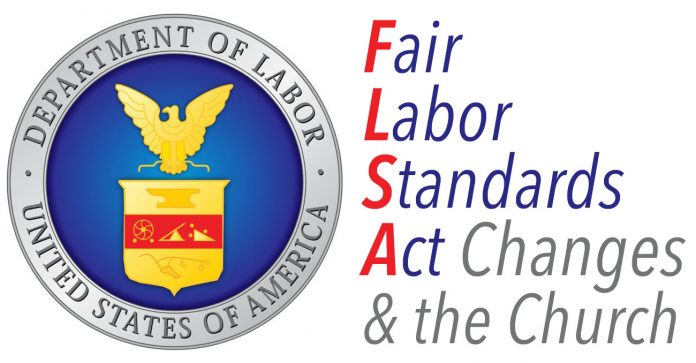What do the new U.S. labor standards mean for the local church?
 The Department of Labor (DOL) recently announced its changes to the Fair Labor Standards Act (FLSA) “white collar” overtime exemption rules. The final rule strengthens protection for workers by increasing the standard salary level for qualification for overtime exemption from $455 per week ($23,660 per year) to $913 per week ($47,476 per year). Practical implications of these rules are:
The Department of Labor (DOL) recently announced its changes to the Fair Labor Standards Act (FLSA) “white collar” overtime exemption rules. The final rule strengthens protection for workers by increasing the standard salary level for qualification for overtime exemption from $455 per week ($23,660 per year) to $913 per week ($47,476 per year). Practical implications of these rules are:-
Churches and other employers should carefully review the employment classification of all staff to ensure employees are properly classified as exempt or non-exempt. This should include the review of each job description to make sure position duties and responsibilities are accurately described.
-
Churches should review budgetary plans to ensure that funding is in place for overtime expected to be due to any non-exempt employees.
-
Appropriate time records should be kept for all non-exempt employees and payment should be made for hours worked in accordance with the FLSA. Expected hours to be worked and pay rates may need to be evaluated to ensure required tracking can be done and corresponding payment can be made.
Though there is no exemption for clergy included in the FLSA, some courts have held that the FLSA does not apply to clergy employees. Specific attention should be given to the applicability of these rules to lay employees of the church.
Visit ctcumc.org/churchadministrationresources for much more on these changes from GCFA and the CTC Finance team.